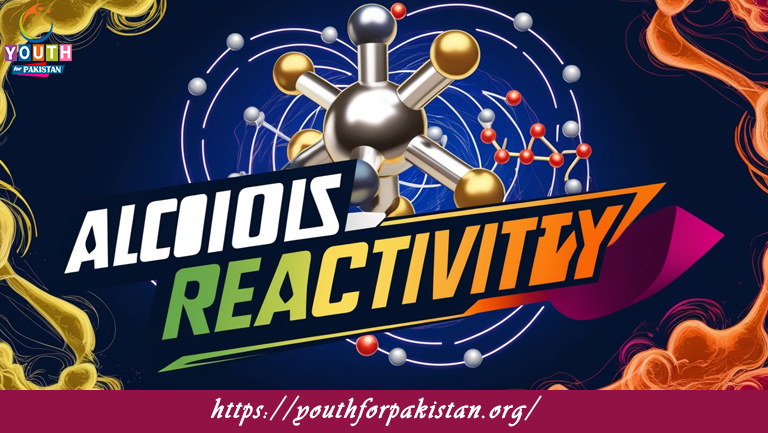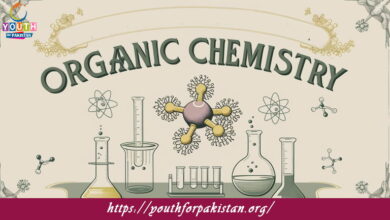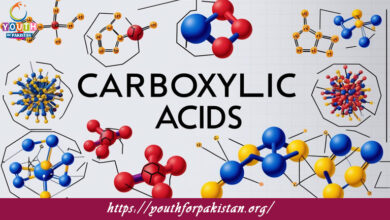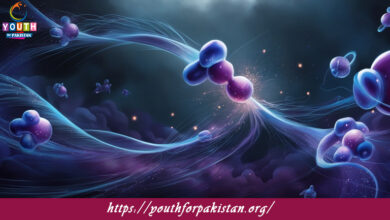Alcohols Reactivity MDCAT Quiz with Answers

Alcohols Reactivity MDCAT Quiz is one of the most fundamental concepts for MDCAT students, as alcohols undergo a wide variety of chemical reactions, which are very vital in organic chemistry. The reactivity of alcohols depends mainly upon the structure of the alcohol, whether it is primary, secondary, or tertiary, and the presence of the hydroxyl group (-OH), which can participate in several reaction types, such as oxidation, dehydration, nucleophilic substitution, and esterification.
Oxidation: Alcohols can be oxidized to form a variety of products depending on the alcohol type. Primary alcohols are first oxidized to aldehydes and can be further oxidized to carboxylic acids. Secondary alcohols are oxidized to ketones, while tertiary alcohols generally do not undergo oxidation due to the lack of a hydrogen atom attached to the carbon bearing the hydroxyl group.
Dehydration: Alcohols can be dehydrated to give alkenes. Usually, this reaction requires acidic conditions, like the use of sulfuric acid (H₂SO₄) or phosphoric acid (H₃PO₄). Dehydration takes place via an E1 or E2 mechanism, depending on the structure of the alcohol.
Nucleophilic substitution reactions can be done with alcohols by their reaction with an appropriate electrophile or nucleophile, where the hydroxyl group is replaced by another group, say, a halide, generally in the presence of an acid or base catalyst. It involves mechanisms—SN1 and SN2—depending upon the structure of the alcohol.
Esterification: alcohols react with carboxylic acids or their derivatives in the formation of esters and water. The reaction is normally catalyzed by acid, especially sulfuric acid, in a manner that makes it very important in the synthesis of perfumes, flavors, and solvents.
These reactions are very important for MDCAT students to understand; they show how alcohols can be converted into many functional groups and compounds. That is why the reactivity of alcohols is going to help predict reaction outcomes and answer questions associated with it in the MDCAT exam.
Quiz: Test Your Knowledge of Alcohols Reactivity
Our MDCAT Quiz on alcohols reactivity will help you consolidate your understanding of the reactions that alcohols undergo. The quiz takes you through questions on oxidation, dehydration, nucleophilic substitution, and esterification. Practicing these questions will improve your ability to predict alcohol reactivity in different organic reactions and hence better prepare you for the MDCAT exam.
Free Flashcard: Key Insights on Alcohols Reactivity
Our free flashcard set on alcohols reactivity summarizes the main reactions that alcohols undergo: oxidation, dehydration, and esterification. With visual aids and examples, these flashcards will help you quickly understand the concepts to quickly react to the questions of reactivity in an MDCAT exam.
Experience the real exam environment with our expertly designed collection of over 25,000 MCQs MDCAT Mock Tests.






